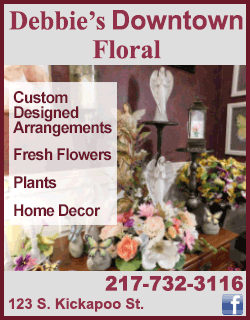Russian police out in force ahead of Alexei Navalny's burial in Moscow
 Send a link to a friend
Send a link to a friend
 [March 01, 2024]
MOSCOW (Reuters) -Police took up positions near the church
where Russian opposition politician Alexei Navalny is due to be buried
in Moscow later on Friday as his supporters estimated over 1,000 people
had gathered to say goodbye to him. [March 01, 2024]
MOSCOW (Reuters) -Police took up positions near the church
where Russian opposition politician Alexei Navalny is due to be buried
in Moscow later on Friday as his supporters estimated over 1,000 people
had gathered to say goodbye to him.
Navalny, President Vladimir Putin's fiercest critic inside Russia, died
at the age of 47 in an Arctic penal colony on Feb. 16, sparking
accusations from his supporters that he had been murdered. The Kremlin
has denied any state involvement in his death.
Tension is high ahead of his funeral because the authorities have
outlawed his movement as extremist and cast his supporters as
U.S.-backed troublemakers out to foment revolution. Previous gatherings
of his supporters have been broken up by force.
There was heavy security at the church, an imposing white domed building
in a south-eastern Moscow suburb, on Friday morning and it was
surrounded by metal crash barriers with dozens of police vehicles parked
nearby.
People carrying flowers arrived early to try to get in as the morgue
holding his body began the process of releasing it to his relatives.
Mourners queued in an orderly fashion as they waited for the service to
start.
"We're all here together. Nobody is afraid," one man, who did not give
his name, told a reporter from the independent Novaya Gazeta newspaper.
"I'm here to support his family and show that they are not alone."
Clutching red flowers, another man, who said he was 73, said he felt
Navalny's death as a personal loss and had admired him for his lack of
fear and plain speaking.

Another woman standing in the queue said Navalny was her hero, while a
young man nearby hailed the late opposition politician as "a symbol of
resistance" and said he had turned up to show that not everyone in
Russia supported the authorities.
Around an hour and a half before the service was due to begin, his
allies said over 1,000 people had gathered near the church to say
goodbye to him. Reuters could not independently verify that figure.
A religious service for Navalny was due to start at 1400 local time in
the Church of the Icon of the Mother of God in the Moscow district of
Maryino where Navalny used to live.
He is then scheduled to be buried at the Borisovskoye cemetery, around
2.5 km (1.5 miles) away on the other side of the Moskva River two hours
later. The cemetery was sealed off with crash barriers on Friday
morning.
Allies of Navalny outside Russia have called on people who want to honor
his memory but cannot attend his funeral service to instead go to
certain landmarks in their own towns on Friday evening at 7 p.m. local
time.
The Kremlin said any unsanctioned gatherings in support of Navalny would
violate the law.
"Just a reminder that we have a law that must be followed. Any
unauthorized gatherings will be in violation of the law, and those who
participate in them will be held accountable - again, in line with the
current law," Kremlin spokesman Dmitry Peskov said.
He declined to give any assessment of Navalny as a political figure and
said he had nothing to say to Navalny's family.
RIGHTS GROUPS OFFER ADVICE TO MOURNERS
Navalny's wife Yulia, with whom he had two children, has said she is
unsure whether the funeral itself will pass off peacefully or whether
police will arrest attendees. She is outside Russia.
[to top of second column]
|

U.S. Ambassador to Russia Lynne Tracy arrives at the Soothe My
Sorrows church before a funeral service and farewell ceremony for
Russian opposition politician Alexei Navalny in Moscow, Russia,
March 1, 2024. REUTERS/Stringer

Navalny's mother Lyudmila, 69, is expected to attend his funeral. It
is unclear who else will be allowed into the church for the service.
Rights groups have advised those who want to attend to take their
passports and small bottles of water with them and told them to
write down the details of lawyers who can help them in case they are
detained and the mobile signal in the area is cut.
Navalny was a Christian who condemned Putin's decision to send tens
of thousands of troops into Ukraine as a crazy enterprise built on
lies. The church that will host his funeral has donated to the
Russian army and enthusiastically advertised its backing for the
war.
In the run-up to his funeral, his allies accused the authorities of
blocking their plans to hold a bigger civil memorial service and
said unknown individuals had even managed to thwart their attempts
to hire a hearse to transport him to his own funeral.
The Kremlin has said it has nothing to do with Navalny's funeral
arrangements.
Navalny's allies - who have promised to livestream the day's events
online - have accused Putin of having him murdered because the
Russian leader could allegedly not tolerate the thought of Navalny
being freed in a potential prisoner swap.
They have not published proof to back up that accusation, but have
promised to set out how he was murdered and by whom.
The Kremlin has denied state involvement in his death and has said
it is unaware of any agreement to free Navalny. His death
certificate - according to allies - said he died of natural causes.
Navalny, a former lawyer, mounted the most determined political
challenge against Putin since the Russian leader came to power at
the end of 1999, organizing street protests and publishing
high-profile investigations into the alleged corruption of some in
the ruling elite.
But a series of criminal charges for fraud and extremism - which
Navalny said were politically-motivated - saw him handed jail
sentences of over 30 years and most of his supporters have either
fled the country or are in jail.
Navalny decided to return to Russia from Germany in 2021 after being
treated for what Western doctors said was poisoning with a nerve
agent only to be immediately taken into custody.
Putin, who controls all the levers of state and is expected to be
comfortably re-elected for another six-year term in two weeks, has
yet to comment on Navalny's death and has for years avoided
mentioning him by name.

Though Navalny is well known in the West, state TV inside Russia did
not mention him for years either and when it did it was brief and in
a negative light.
(Reporting by Reuters; Writing by Andrew Osborn; Editing by Daniel
Wallis and Philippa Fletcher)
[© 2024 Thomson Reuters. All rights reserved.]This material
may not be published, broadcast, rewritten or redistributed.
Thompson Reuters is solely responsible for this content. |